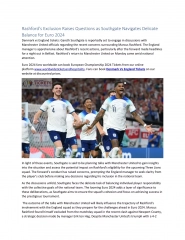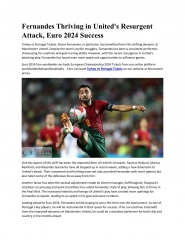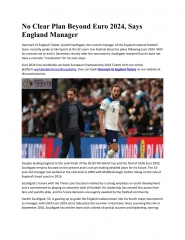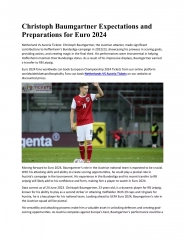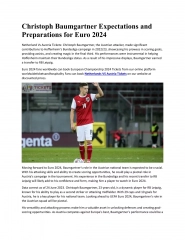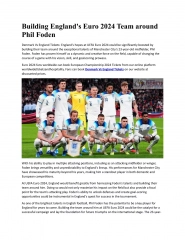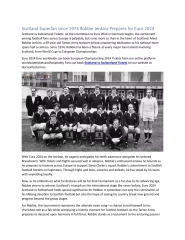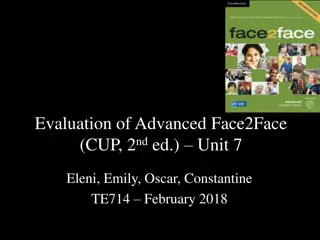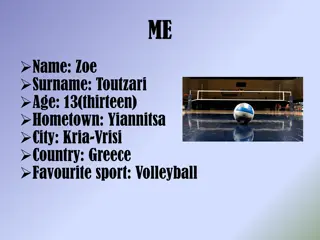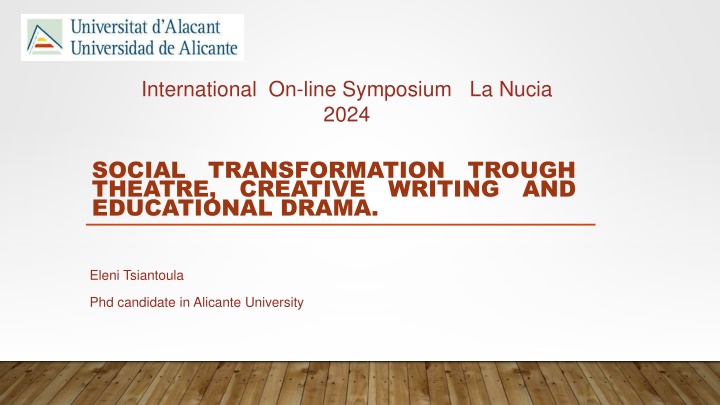
Exploring Social Theatre and Educational Drama Through Writing and Adaptation
Discover the engaging world of social theatre and educational drama in the online symposium La Nucia 2024, exploring transformative creative processes led by Eleni Tsiantoula. Dive into the art forms, classical works, folk tales, and adaptation techniques that shape this educational experience.
Download Presentation

Please find below an Image/Link to download the presentation.
The content on the website is provided AS IS for your information and personal use only. It may not be sold, licensed, or shared on other websites without obtaining consent from the author. If you encounter any issues during the download, it is possible that the publisher has removed the file from their server.
You are allowed to download the files provided on this website for personal or commercial use, subject to the condition that they are used lawfully. All files are the property of their respective owners.
The content on the website is provided AS IS for your information and personal use only. It may not be sold, licensed, or shared on other websites without obtaining consent from the author.
E N D
Presentation Transcript
International On-line Symposium La Nucia 2024 SOCIAL THEATRE, EDUCATIONAL DRAMA. TRANSFORMATION CREATIVE TROUGH WRITING AND Eleni Tsiantoula Phd candidate in Alicante University
INTRODUCTION INTRODUCTION
Introduction Theatre Teaching tool Art form Drama in Education Classical works (Zoniou, 2003- Katsaridou, 2011)
Introduction Folk Tail Creative Writing Adaptation Educational Drama Teaching experiential proposal
Introduction First part Bibliographic overview Second part Theatrical adaptation Educational drama
PART ATHEORETICAL PART ATHEORETICAL FRAMEWORK FRAMEWORK
Characteristics of Folk Fairytale Simple style and simple expressive media Limitation of factual descriptions Lack of psychological descriptions Tacticality of episodes Common narrative rules Local idiom language Voltage for idealisation (Sakkelariou, 1995)
Child and Folk Tale Transportation in a Wonderful World Entertains Positive effects Cultivating creativity Teaches no obvious teaching Develops emotionality, memory and attention Stimulates the imagination (Tsampouris, Mytilineou, Giaouris, & Evgeniadis, 2015 - Tsilimeni, 2011- Malafantis, 2011)
Definition of Adaptation Condition of adaptation The new version or the editing and correction of a work that has already been published or has been represented. Adaptation as a concept, process and outcome Transfer an identifiable project to a new one. Process of creation: reinterpretation recreation. Perspective of the process of adaptation interactive engagement with the original work. (Papadopoulos, 2006 -Hutcheon, 2006- Secretary of State, 2006)
Definition of Adaptation Adaptation techniques Change of species Linguistic adaptation Omission Addendum (Zervou, 2012)
Definition of Adaptation Children s literature and adaptation Covers: Works written for adults. Works written by famous writers in other times. The folk tales. (Kanatsouli, 2007)
Definition of Creative Writing Creative Writing as a term has two meanings: Mind-check written impression Use of educational practices, techniques and playful stimuli creativity producing texts activating children s A modern experiential educational method. Its main characteristic as a teaching method is that there is no right or wrong. ( (Kotopoulos Kotopoulos, , 2012 2012 - - Tsilimeni Tsilimeni & & Paparousi Paparousi, , 2010 2010 - - Souliotis Souliotis, 2012) , 2012)
Creative Writing and Education It is an important tool in education from a very young age. It is part of the exploitation of dramatic art in education. He borrows material from both the Theatre and the other arts, and guides the child through an experience. It contributes to the child s contact with literature. (Diakoumakou, 2017- Kotopoulos, 2012- Tsilimeni, 2011)
Definition of Educational Drama Form of theatrical art with purely pedagogical character. It is taught either as an independent art course or in combination. Emotional involvement, mental processing of situations. (Avdi & Hadjigeorgiou, 2007)
Definition of Educational Drama The participants shall: create a fantastic world based on a story working in groups they play roles take they act reflect on decisions (Avdi & Hadjigeorgiou, 2007)
Definition of Educational Drama DRAMA THEATRE Similarities The role The dramatic tension Focus, space Time Language and movement Atmosphere, symbols, meaning Differences It is based on improvisation and not just on a text. There is no common. (Avdi & Hadjigeorgiou, 2007)
Objectives of Educational Drama The central goal is learning through understanding the self and the world. Investigation of social issues. Initiation of pupils and students in the art of theatre Social development of the self. Promoting active, experiential, collaborative learning Fostering critical thinking and a sense of social responsibility. Entertainment through an imaginary situation. (Avdi & Hadjigeorgiou, 2007)
PART PART B B RESEARCH RESEARCH PROJECT PROJECT
Methodology Qualitative research action research. Technique: dramatised storytelling. Objective: The theatrical adaptation of a folk fairy tale with the aim of its experiential application in the form of an educational drama workshop for children of formal development (C' 6th grade of primary school). Research question: explore the results of the application of this technique in two classes with different backgrounds.
Methodology Due to the pandemic, the action survey did not provide a teaching proposal for future implementation. Collection techniques: observation and maintenance of a calendar. Sample: fourth grade pupils, two different primary schools (city and province). The workshop will be implemented in ten teaching hours.
General Educational Objectives Children play roles and learn to interact. There is an individual as well as a collective experience. Important issues of everyday life are explored and knowledge and experience that is useful in the course of children s lives are acquired. Children learn to act and reflect on their actions. At the same time with learning is also realised knowledge of the self but of the world as a whole. Students are initiated into the art of theatre while at the same time developing their expressive means. It liberates and strengthens the emotional world while gaining empathy, self-esteem and self-confidence. Children s entertainment is achieved and imagination and creativity are cultivated.
Limitations of Research Difficulties in the management and implementation of the theatrical adaptation and drama: As faithful as possible of the secondary text without unwanted alterations. Correct performance of the characters as well as highlighting their issues and dilemmas. A successful approach by both children and adults with the same denominator of the children s audience. Language dialect. Use of technical adaptations.
Adaptation of theatrical play Split the play into scenes. Linguistic simplification. Preservation of space and heroes. Addition of directorial and stage instructions. Increase of dialogues. Update of data. Addition of humorous, emotional and philological elements. Accentuation of means of expression
Experiential Theatrical Workshop Project of Activities Traditional Folk Tale The Snake and his theatrical adaptation Source/Reflect: Elementary/ high school Age Group: Trust Subject: A widow secretly raises as her child a serpent, who, in order to marry the queen she loves, must succeed in the three difficult trials imposed on him by the King, without anyone knowing his secret. His secret confesses to Vasilopoula and asks her not to reveal it to anyone, otherwise there will be consequences. Can he trust her to keep his secret? What if the Queen betrayed her trust? Will she be able to regain the confidence he has shown her? Can we trust everyone? Question: In this case: Why is it important to keep the secret of someone who trusts you? Why do you have to say No when it comes to trust? Sub-questions: Snake, Vasilopoula, Mother, Companions/Snake Friends, Parents Vasilopoula Is it easy to regain the trust of someone you betrayed? Roles for children:
Special Educational Objectives of Activities Learn the importance of keeping the secret of someone who trusts you. Development of critical thinking. Get to know the kids if it s easy to regain the trust of someone they betrayed. Teach children to say no when it comes to trust issues.
Presentation of Activities Acquaintance activities, Team activation games Trust Games Storytelling Educational Drama Techniques an interrogation chair, detection of Thought the corridor of consciousness, character contour (it s and but we have to put)
Presentation of Activities Acquaintance with the play with the following steps: There is a discussion about the heroes of the text, their characteristics and their peculiarities. Follow small improvisations warm up the team Share roles with children Setup Rehearsals Theatrical performance
Expected results Through dramatisation, the text was transformed: make it more accessible to children. to serve the needs of the objectives set. The development of critical thinking belongs to both the general and the specific teaching objectives. Children are told that: they can make important decisions. to solve problems. they are able to use their skills in their daily lives. Specific teaching objectives: relationships of trust betrayal.
Conclusions Folk fairy tale Collaborative learning Responding to today s data Understanding and consolidating texts Composition production of speech Entertainment entertainment Development of psycho-social-emotional skills Knowledge transfer Experience of experience Managing yourself and the world Cover with creative writing Educational drama
Proposals for Future Research Carrying out a future survey Real-time implementation of activities. Educational application in juvenile prisons or rehabilitation structure Study both short-term reactions and results over time.
Indicative Bibliographical References Avdi, A., Hadjigeorgiou, M. (2007). The art of drama in education 48 proposals for theatrical education workshops. Athens: IT S A METAPHOR. Secretary, T. (2006). Cover of Shakespeare s Works for Children and Young People. Athens: IB. Diakoumakou, A. (2017). Dramatic Art in Education and Creative Writing. An action survey with 4th grade students in primary schools in Sparta. Drama Art and Performing Arts in Education and Lifelong Learning MA in Drama and Performing Arts in Education and Lifelong Learning. Retrieved June 21, 2020. Zervou, A. (2012). In the land of miracles. Athens: It s a Patakis. Hutcheon, L. (2006). A Theory of Adaptation. London, New York: Routledge. Kanatsouli, M. (2007). Introduction to the theory and criticism of children s literature school and preschool (2ndedition). Thessaloniki: University Studio Press. Kotopoulos, T. (2012). The legalisation of creative writing. Retrieved 21/06/2021, from http://keimena.ece.uth.gr/main/t15/03-kotopoulos.pdf Malafantis, K. (2011). The fairytale in education: Psychopedagogical dimension and utilisation. Athens: It s an interaction. Papadopoulos, G. (2006). The unaccessible Essence of the Person and the Transition of Artificial Persons. Shakespeare s Works for Children and Young People (pp. 113-120). Athens: IB. Sakellariou, X. (1995). The story yesterday and today. His psychopedagogical and social function. Athens: It s a Patakis. Souliiotis, M. (2012). Creative writing: Navigation instructions. Athens: Ministry of Education and Culture. Tsampouri, A., Mytilineou, E., Giaouris, C., & Evgeniadis, G. (2015). Make your own story with us... Panhellenic Conference of Education Sciences, 2015, 1438-1447. Tsilimeni, T. & Paparousi M. (ed.). (2010). The art of fiction and creative writing. Thessaloniki: Focus. Tsilimeni, T. (2011). Narration and training. Introduction to the art of storytelling Articles and Studies. Thessaloniki: Focus.
Through creative writing, the story takes life and turns into an adventure and a perpetual journey. (Kotopoulos, 2012) Thank you very much for your attention!

